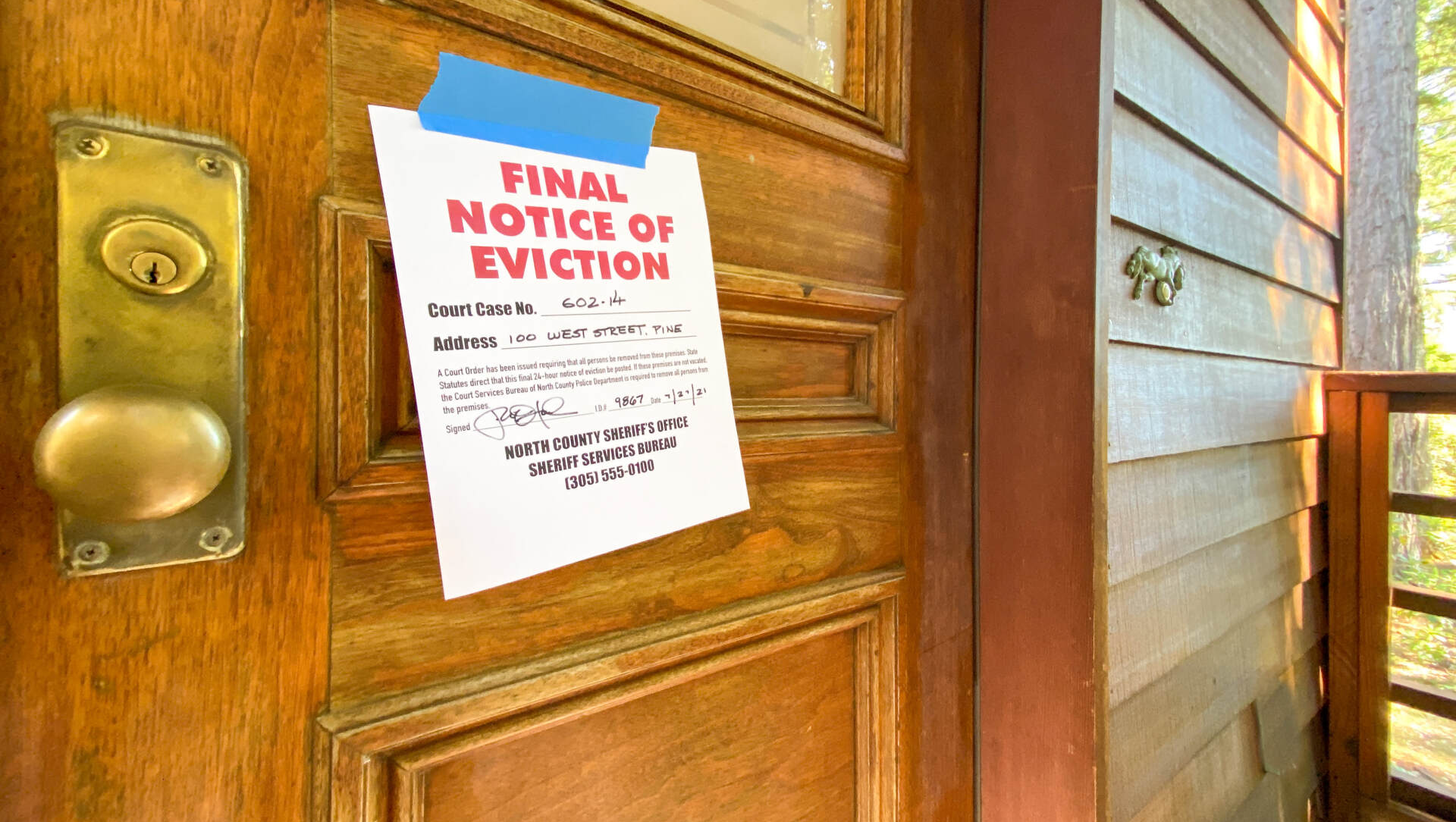How to Evict a Tenant in Michigan | Zion REI
Evicting a Tenant in Michigan

Landlords in Michigan must follow a set of protocols when kicking their tenants out. This means that they cannot cut off utilities or replace locks without first obtaining court approval, which is only given upon completion of the eviction proceedings (according to state law).
Landlords who utilize their illegal eviction methods may be sued by tenants if they use these flawed practices. Tenants exercising their rights, such as reporting construction flaws to authorities or landlords will not get away with evicting them for doing so because it's against the law!
Landlords should be aware that the summary proceedings for evictions in Grand Rapids, Michigan allow them to schedule a hearing as soon as possible after they file the necessary paperwork. This streamlined process can greatly expedite your eviction and make it less stressful on all sides!
With COVID-19, we've seen the eviction process slow down and leave many landlords and tenants struggling to know what to do.
Reasons Evictions Occur
List of Services
-
Health or Safety ViolationsList Item 1
Landlords are not required to give tenants an additional seven days after serving the 7-Day Notice for violations such as causing damage to plumbing or infestation. The tenant can be evicted without any further notice if they refuse to leave after this period has expired, regardless of whether there was time left on their lease agreement.
-
Payment DelinquenciesList Item 2
Landlords should be aware that they can't evict renters until at least 7 days after the due date. This gives tenants time to pay their rent or fix whatever's wrong with them, and it also protects landlords from having an improperly late fee imposed on them because of missed payments by applicants who were unaware of these rules beforehand!
When tenants pay rent within the seven-day grace period, they can avoid being evicted. If not able to make their payments and continue occupying a property after that time has passed or when eviction proceedings have begun against them.
-
Illegal ActivitiesList Item 3
If you are a landlord and your tenant is involved in any illegal activity on the property, it’s best practice to call law enforcement. It may be necessary for them to serve an official notice from 7 days or less if there were violations such as violence occurring within that time frame- but only 24 hours at most!
-
No Lease / Lease TerminatedList Item 4
Under Michigan law, landlords must give tenants some notice before evicting them if they remain in the property after their contract has expired. This means that month-to-month renters and those with short-term agreements will also be included under this requirement for proper eviction procedure. The landlord must provide a 30-day notice to leave regardless of the kind or duration of the tenancy, even for unwritten leases.
-
Breaking Terms of the Lease
Your tenant is breaking the rules! One of the most common reasons for eviction, lease violations can include smoking, drug use, or owning pets. If your tenant violates the lease agreement, you must provide them with a written notice specifying the problem and how to fix it. If they do not comply, you can then file for an eviction.
How Eviction Works in Michigan
List of Services
-
Send a LetterList Item 1
If you want to avoid conflict and secure your rent money, the tenant must know about their rights. A warning letter is one way of doing this—especially for long-term renters who have a history or paying on time each month (or those offered “grace periods").
-
NoticeList Item 2
When a landlord wants to evict their tenants, they first have to give them proper notice. The type of demand affects how long this period lasts- there are two types: 1) Where the tenant has been given time periods in which rent can be paid; 2), where no mention was made about payment plans or future dates for repayment (but instead), all discussions focus around what will happen once someone misses one payment--these folks get thrown out on Account!
-
File a ComplaintList Item 3
To enforce your rights as a landlord, you will need to file a suit in the appropriate court.
The paperwork for filing a complaint includes submitting the proper court-approved versions of your notice and claim along with all other relevant documents. You will also need to make sure that you include an #10 stamped envelope as well!
-
Court Hearing & JudgementList Item 4
If the tenant fails to appear for their hearing, then they may lose any rights under landlord-tenant law. In this case or if neither party shows up at all—the judge has options! The first option is to postpone it again until another seven days from now; however she can also grant you permission right away without them having done anything wrong by not showing up in court today (and giving themselves more time).
-
Return of Property Possession
If you have been served with a writ of reparation, the police must be able to get in touch as soon after receiving these documents. The sooner they can carry out their duties following receipt, the sooner you will get your property back!
-
Conclusion
If you are a tenant and find yourself in the unfortunate position of being evicted, it is important to know your rights. The eviction process can be long and complicated, but with the help of an experienced attorney, you can make sure that the landlord follows all of the necessary procedures. If you are a landlord who needs to evict a tenant, please contact our office for more information on how we can help. We would also be interested in purchasing your home if you decide to sell instead of going through the hassle of eviction proceedings. Thanks for reading!





